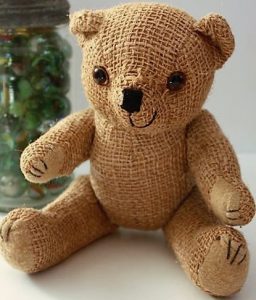Previously in the novella: The Man in the Red Underwear is a pastiche of prose and poetry with absolutely no purpose except to make the ready break out in giggles. There are hints of parody of Zorro and The Scarlet Pimpernel and a dash of social satire on gender roles and class mores, but not enough to get in the way of a good time. Lady Cecelia Snob-Johnson throws her annual society ball.
The inspector shook his head in amazement that he had been drawn into the world of iambic pentameter. He hated poetry. It was his worst subject in school. Before he knew it Cecelia stood between him and his escape.
I love gossip! Steamy gossip! Dirty gossip!
Gimme gossip! Live for gossip! I truly crave gossip!
Old Hardesty Astin was such a bastion of the law,
Was chief inspector of Scotland Yard, retired without a flaw.
He’s dumb as a stump and lives in a dump. They say he’s a chump.
Fatima his mom knew all the right johns so he got raised to the top
Fat Astin and her baby boy, first family of all the cops!
Hardesty Astin was a touchy subject with Malcolm Tent. He turned away, looking for another door out of the library. Cecelia, however, diligently tailed him.
“Gimme gossip!” She grabbed his lapels and wouldn’t let go.
“I don’t care, ma’am!” Tent tried to shove her away, but she was a strong old broad.
“Steamy gossip!”
The inspector pivoted, making an end run for the door to the ballroom. “Don’t give a damn, ma’am!”
“I love gossip!” Cecelia grabbed him around the waist and refused to let go.
“Very well! I’ll tell you everything if you promised never to put your arms around me again!”
“As you wish.” She released him and went to the chaise lounge and sat. “So, what are the shopkeepers saying?”
“The shopkeepers are saying….” Tent’s voice trailed off as he organized his thoughts. “They’re saying…good citizens—that’s right, good citizens doing their civic duty– are thwarting this man in red underwear before he actually takes any money.”
“Perhaps I could help.” Cecelia stood, taking a step toward the inspector.
“You could?” Tent took a step back.
“Of course, as I just revealed to you, I know all the best gossip.”
“Lady Snob-Johnson, if you know the identity of this villain, it is your duty to reveal it.” Tent sounded extremely menacing, even though he did keep his distance.
“I made it sound like I know but I don’t,” she demurred.
“I think you are lying.” Tent walked to the fireplace and touched the photograph frame. “I suspect your most valued possession is this picture of Lily Langtry. You wouldn’t want to lose it, would you?”
“You wouldn’t take my picture of Lily, would you?”
“Oh no, not I. But my assistant would.” Tent dramatically pulled out a police whistle and blew it.
The door to the ballroom opened and a bent-over man in a long, flowing black hooded robe entered and dashed to the inspector’s side. “Yes, master?”
“Oh, you must be kidding,” Cecelia exclaimed in disbelief. “How did he get past the doorman? My guest list was a bit dodgy, but this is ridiculous.”
“You’re right.” Tent eyed the man with suspicion. “You’re not my usual henchman. Thug-R-Us usually send Igor. You’re not Igor. Why didn’t they send Igor?”
“He has a special out-of-town assignment, master. A Dr. Frankenstein asked for him.”
“That quack?” The inspector curled his lips in disdain. “Why didn’t he dig someone else up?”
“I think he’s planning to, master.”
“Please don’t take my picture of Lily!” Cecelia reached out in supplication to the creepy guy. She could usually get creepy guys to do anything she wanted.
“Your only chance to save your treasured picture of Lily Langtry is to tell me who the man in the red underwear is!” Tent demanded.
“Master?”
“Yes, what is it?” he asked impatiently.
“I can tell you who the man in the red underwear is.”
“Oh you can, can you?” Tent had that icky tone of contempt to his voice.
The man stood at his full height, flung the cape over Tent and pushed him over the chaise lounge. It was the Man in the Red Underwear, all arrayed in red attire, a blousy shirt opened to his bellybutton, outrageously tight pants and a mask covering precious little of his chiseled good looks. He took the picture of Lily Langtry from the mantle.
“Oh please, I know you’re a thief—an incredibly gorgeous thief—but don’t take my picture of Lily!” Cecelia implored.
“Don’t fear, dear lady. I take this treasured item only to save it from the hands of Malcolm Tent. When all danger has passed, I will return it to you. On my honor as a gentleman.”
“And you are a gentleman,” she responded coyly. “I can tell by the cut of your tights.”
“Until later.” He took her hand and kissed it.
“How gallant!”
“I know!” The Man in the Red Underwear swept across the library, raised a window and disappeared into the night.
